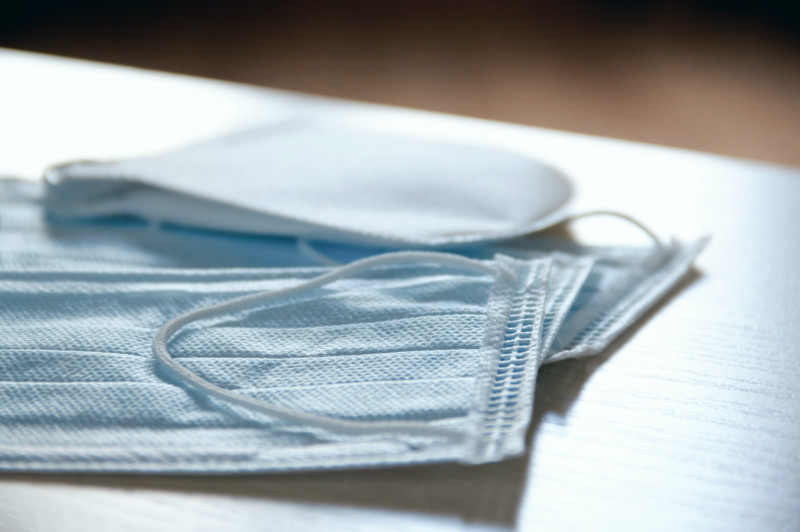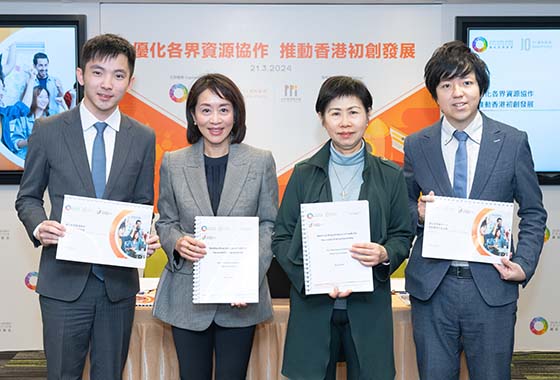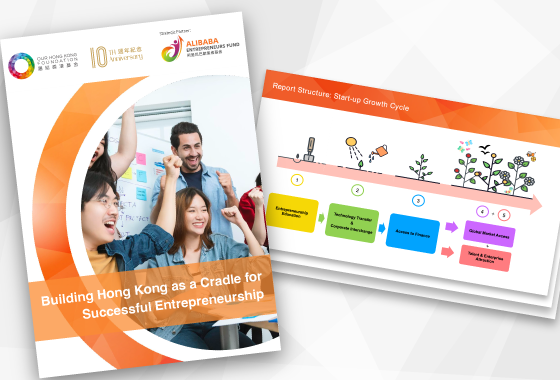Sluggish govt support for technology undermines pandemic fight
This article appeared originally in the ejinsight on 22 June 2020.
Authors: Amy Liu, Managing Editor at Our Hong Kong Foundation

The lack of support for Hong Kong’s technology and innovation efforts is highlighted during the city’s fight against the Covid-19 pandemic, which is putting both the urgent and long-termed needs of the city into peril.
With more than 8.5 million people globally infected by the Covid-19 virus and growing, one of the main challenges is the lack of equipment, ranging from masks that block infected droplets to ventilators that save the lives of patients with lung failure. As demonstrated by worldwide efforts to produce more ventilators and masks creatively, innovation technology is helping to make a positive contribution during the crisis.
At the peak of the pandemic in mainland China, drones were making automated flights between hospitals and disease control centres to transport critical supplies and medical samples, while agricultural drones helped to disinfect millions of hectares of land. Drones were also used to help to ensure citizens stay vigilant in observing protective rules. A video that went viral on the internet showed a drone spotting an old lady walking outdoor without wearing a mark. The drone broadcasted a message to urge her to wear a mask, wash her hands, and go home. She duly obliged.
The drone industry has a Hong Kong connection, albeit a regrettably limited one. Frank Wang, from Hangzhou in China, is the founder of the world’s top drone maker DJI. Wang attended the Hong Kong University of Science and Technology, where he demonstrated expertise in drones. After graduating in 2006, he founded DJI in Shenzhen, which is now the world’s largest drone company. On many occasions, Wang recounted his gratefulness to his alma mater.
Hong Kong can play a bigger role in fighting epidemic
Equipped with world class faculties, Hong Kong has nurtured many talents in scientific research and technology, like Wang. But as a result of the government’s short-termism, Wang’s application for government support was rejected, forcing one of world’s leading technology talents to leave Hong Kong and develop his business elsewhere. Although the Hong Kong government has been doing more in recent years, it is still not enough. A case in point is the Hong Kong Polytechnic University, which developed the world’s first automated multiplex diagnostic system for detecting up to 40 infectious respiratory pathogens (including Covid-19 and SARS) in a single test. With patients of many of these diseases asymptomatic or displaying similar symptoms, this system helps frontline doctors to identify the disease in just one hour, so that patients can swiftly receive the right diagnosis and treatments. However, the research project’s application for funding from the Hong Kong government was rejected. Support from a local biotechnology company eventually helped this world-leading project to materialise. But the success of a research and development project is one thing, its application is another challenge. We believe the government should help to make it possible for this diagnostic system to make its way widely into clinics and hospitals not just in Hong Kong, but all over the world, to help fight the pandemic as soon as possible.
During the Covid-19 pandemic, disinfection is one of the most important priorities. Dr Ho Pak-leung, Head of the Centre for Infection at the University of Hong Kong, pointed out that supermarket trolleys and their handles are infected with dangerous germs, and he urged people to wash or disinfect hands after shopping. But back in 2016, two secondary school pupils in Hong Kong actually won the Gold Prize at the prestigious Geneva International Exhibition of Inventions for an “automated disinfecting door handle”. Prompted by the common sight of people covering door handles with tissue paper during the SARS pandemic in 2003, the pair created the invention that uses ultra-violent light to activate photocatalyst materials on the door handle for disinfecting purpose. Despite winning international recognition, the young inventors were unfamiliar with issues such as business planning, patents, certification, production, and marketing, leaving the invention still far from achieving commercialisation despite its clear relevance for health.
Lack of financial support for local mask production
Lackluster relief efforts for Covid-19 by the government have also come under attack, such as the harsh and unrealistic conditions for assistance for local clinical mask production. Despite the huge global and local demand for masks, Hong Kong companies with the technology but not the cash are struggling to get any meaningful support from the government. For instance, Ronald Yuen, founder of Suirich Flex Limited, revealed that despite forming a partnership with a German firm to make high quality masks in Hong Kong, he needs additional funds to start production. But he said government funding would only come after six months of production, while banks also refused full financing requests despite Yuen’s residential property as collateral. In fact, the vast majority of initial local applications for government support for mask production was rejected, in spite of the serious shortage and the government’s pledge to support.
These incidents are particularly regrettable because Hong Kong is blessed with the ingredients for exceling in innovation and technology, featuring top universities with world-class research, Science Park and Cyberport which support plenty of promising start-ups, as well as the enterprise and marketing know-how of our business sector. The problem is the components are, as a whole, not clicking. As such, Our Hong Kong Foundation believes the city should adopt a model with strengthened coordination among the government, industry, academia and research sectors to enable synergy and cooperation. We believe the government should strengthen its resource input to industry, academia and research institutions, while taking the lead to ensure all parties will work in a cooperative and complimentary manner. Hong Kong’s scientific and research achievements are well documented, but so are the difficulties facing the sectors. During the current Covid-19 health crisis, technology talents and companies in Hong Kong are keen to help, but they are faced with familiar policy and bureaucratic barriers. It is time Hong Kong unlocks its potential in this direction and the government should help to make it happen.



